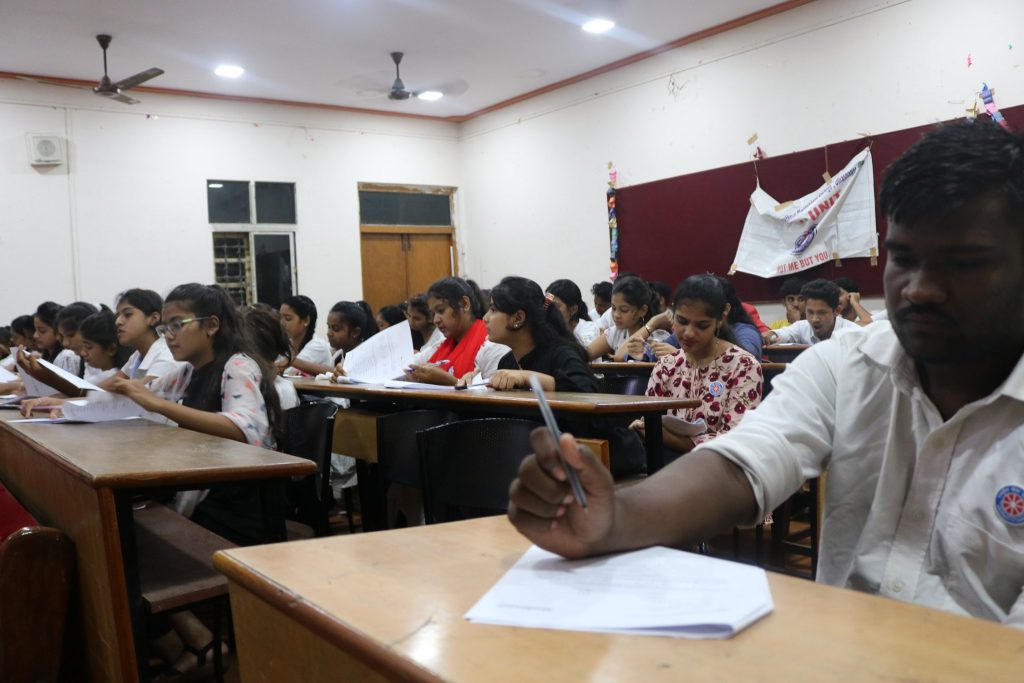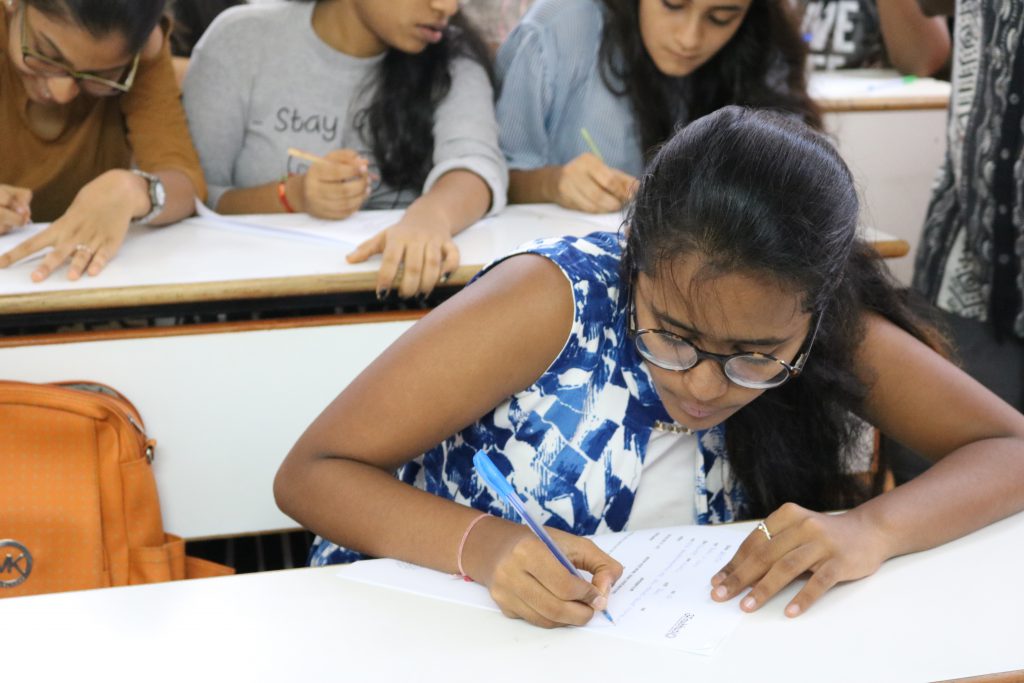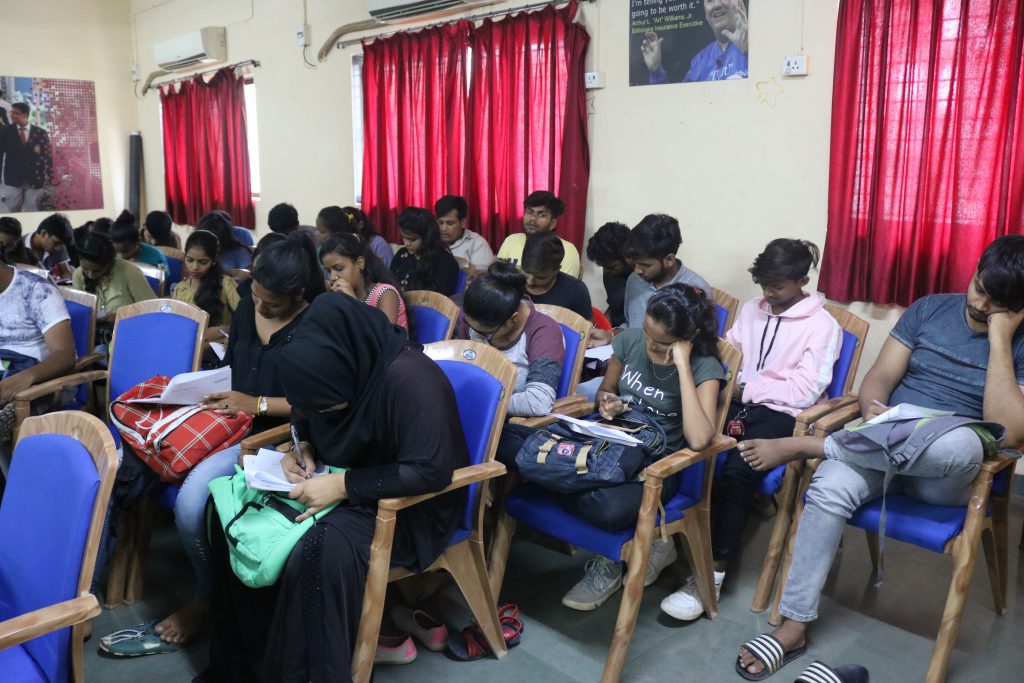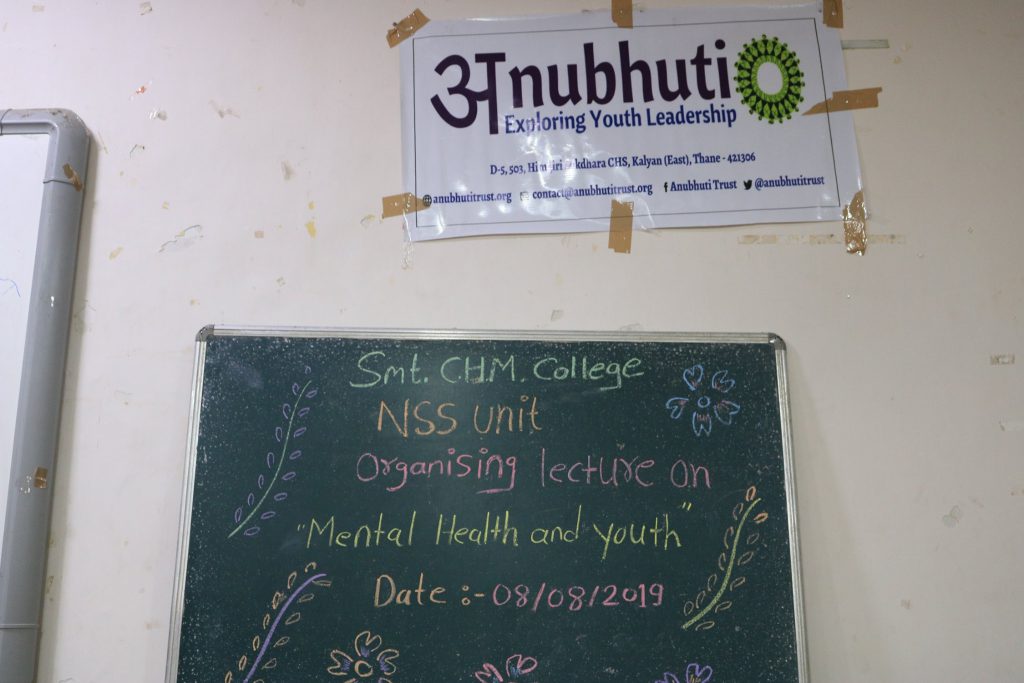“I was utterly alone, guilty, confused, angry, dejected.. when I could not continue into college even after standing second in my school in class 12. For want of a few thousand rupees. No one could understand my humiliation then – not friends, not teachers. My family was struggling for basic needs in which a college education was far removed from their reality.”, recounts Deepa, Founder-Director of Anubhuti. She, and millions of youth like her in India, who belong to socio-politically vulnerable groups, have no idea or support for their Mental Health (MH). Such support is especially needed in the age group between 15-29 years in our country, who have the highest suicide rate in the world.
This support can best be provided by higher education spaces where youth spend majority of their time – this is the idea behind our action-research for Youth Mental Health Justice and Empowerment in Colleges. This idea is being whole-heartedly supported by the 650 and counting diverse youth populations we have reached till date in 7 colleges in Thane District, Maharashtra. Not just youth, but teachers and principals have supported the program since as educators they face youth mental health crises regularly and feel the need for support to deal with the same.
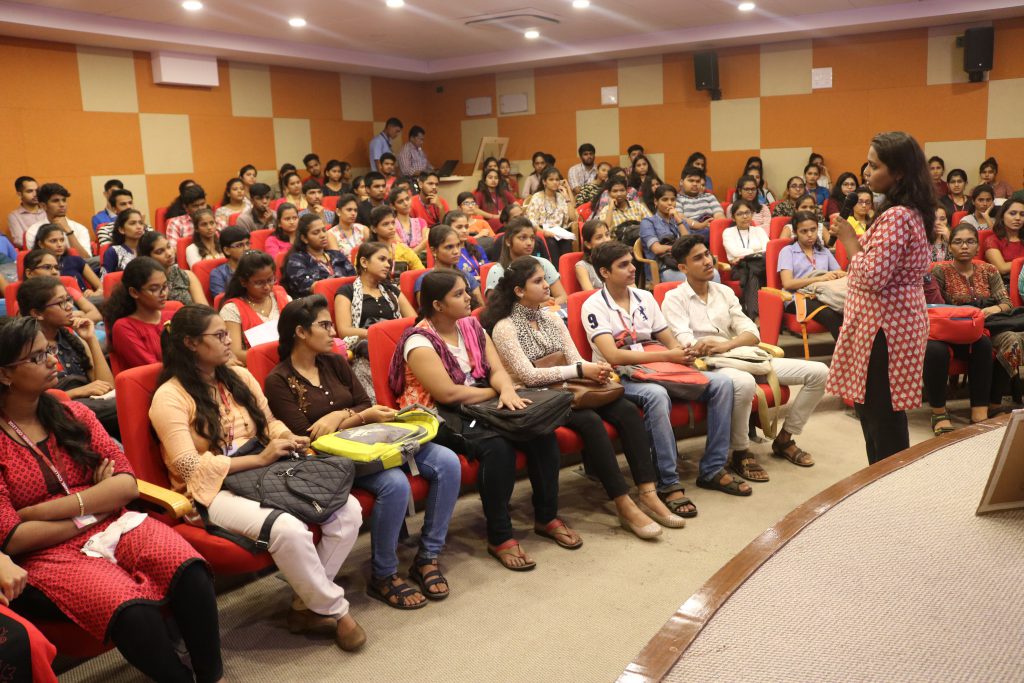
We aim to reach 1500 youth by the end of this year with trainings on mental health, mental empowerment, social justice, equity and their intersections along with knowledge of resources and strategies to handle distress and conflict in self and in those around us.
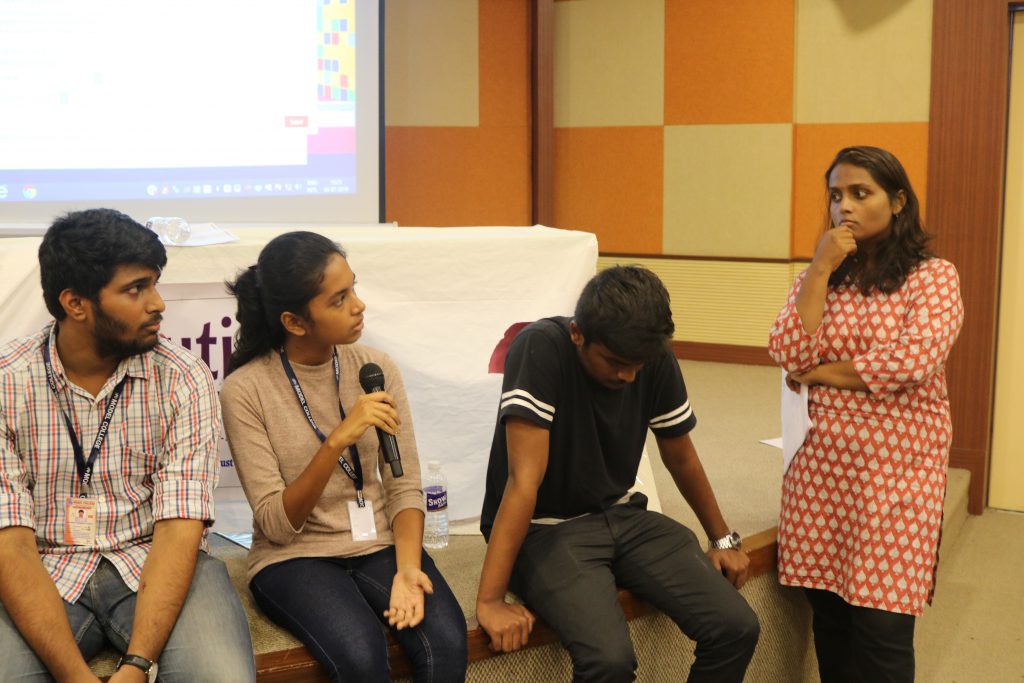
“Please continue this work with youth. We have many problems, we need to learn how to deal with them, how to solve them by focusing on them. Suicide is never the last option…we must pay attention to those around us.”
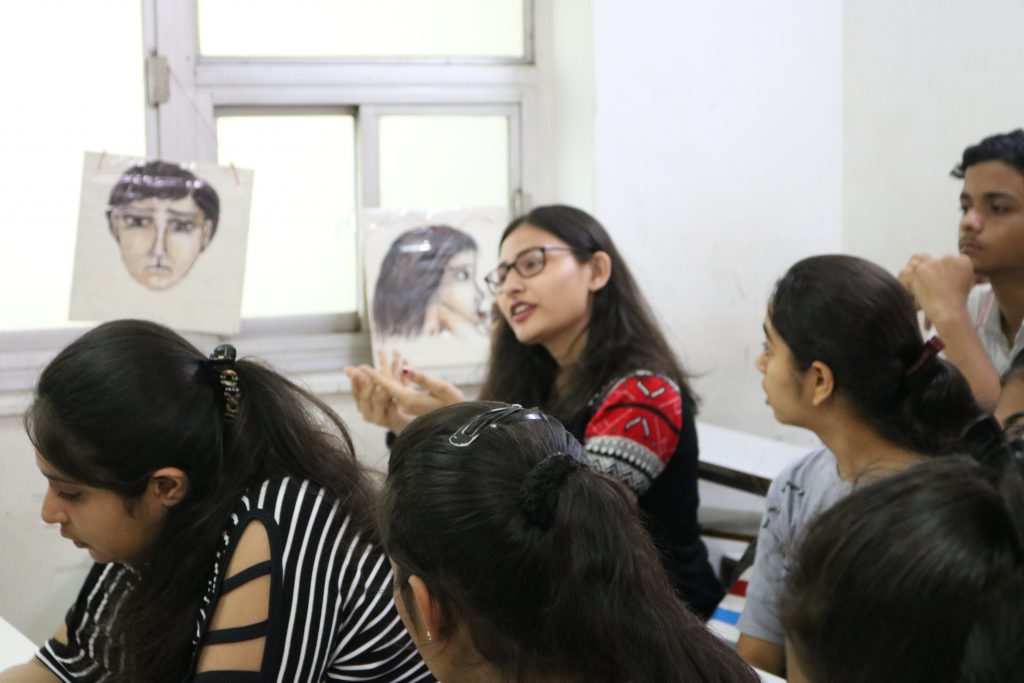
“Got motivation to work on improving my mental condition”
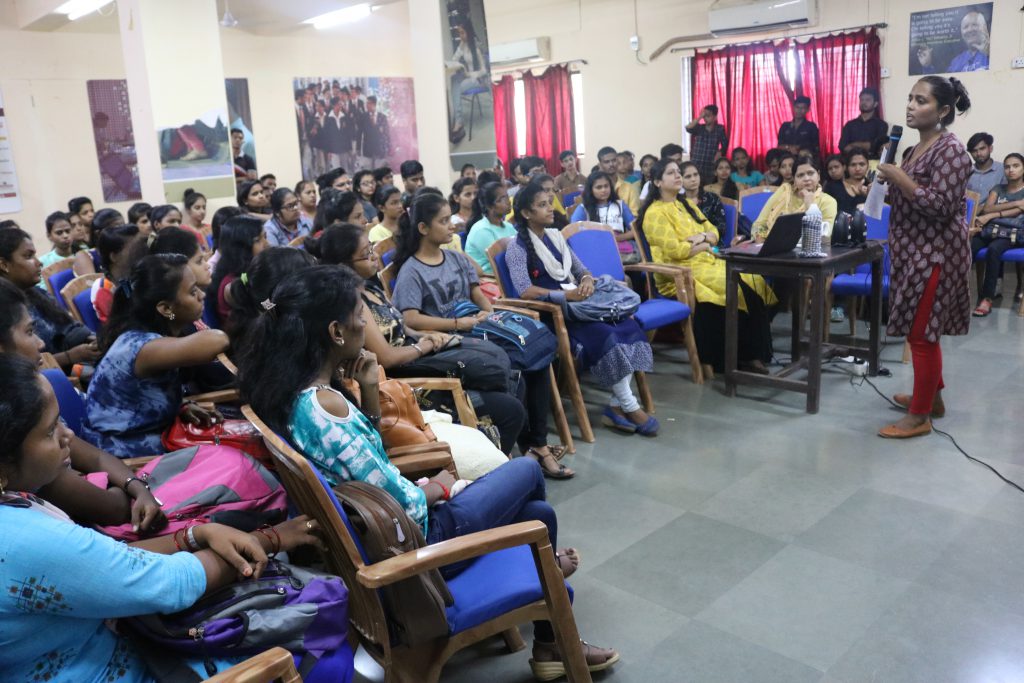
“We youth face many problems in our everyday life, got guidance how to face them”
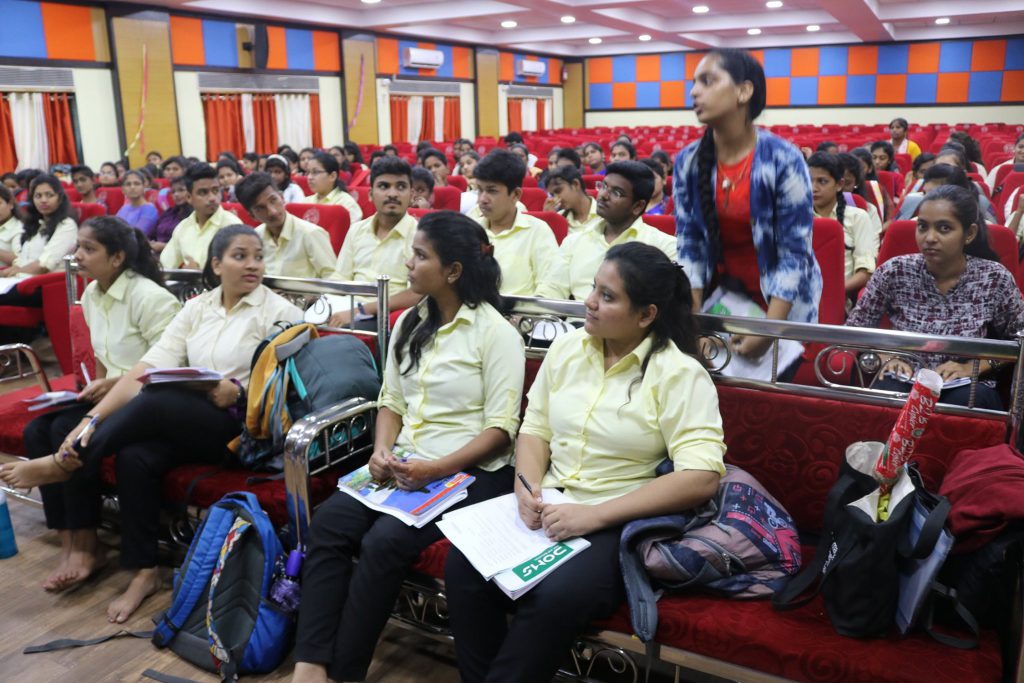
“All feelings were explained – that there is nothing wrong with feeling emotions. Thank you for encouraging us to express feelings.”
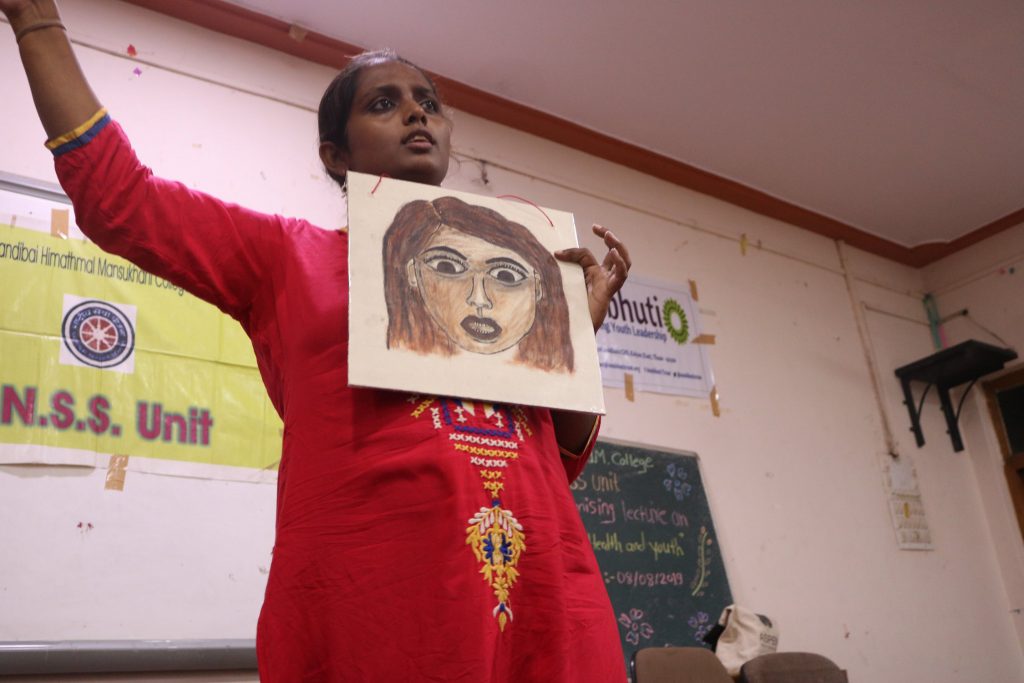
“The activity where we understood the social situation and therefore mental situation of people who are ostracized from society was thought-provoking.”
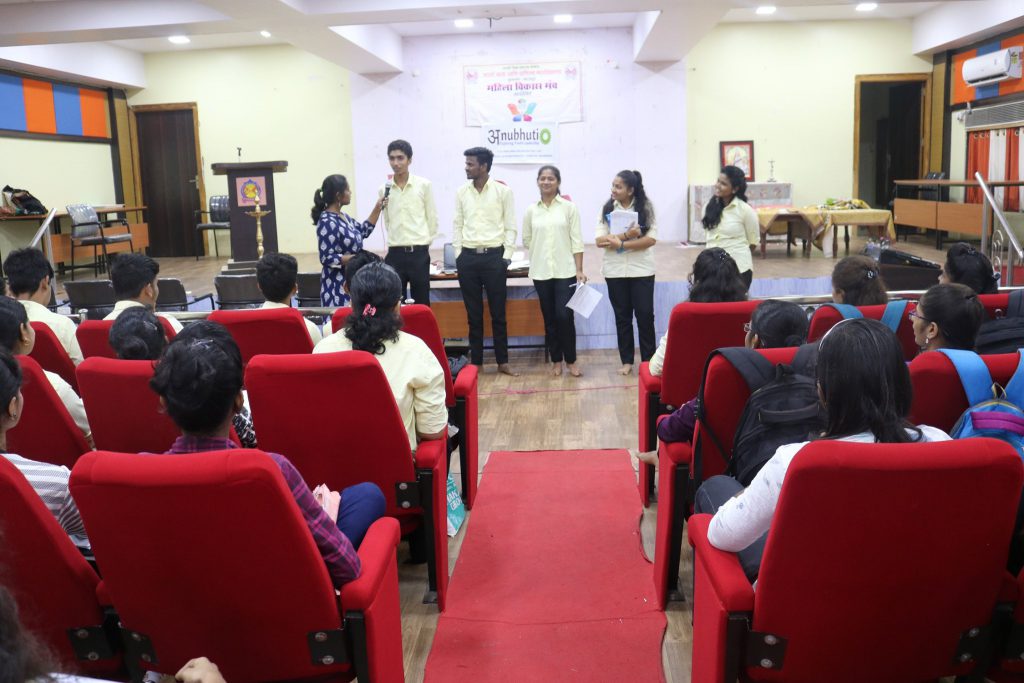
“Helped us realise that our mental health needs first preference always because it affects our physical health also.”
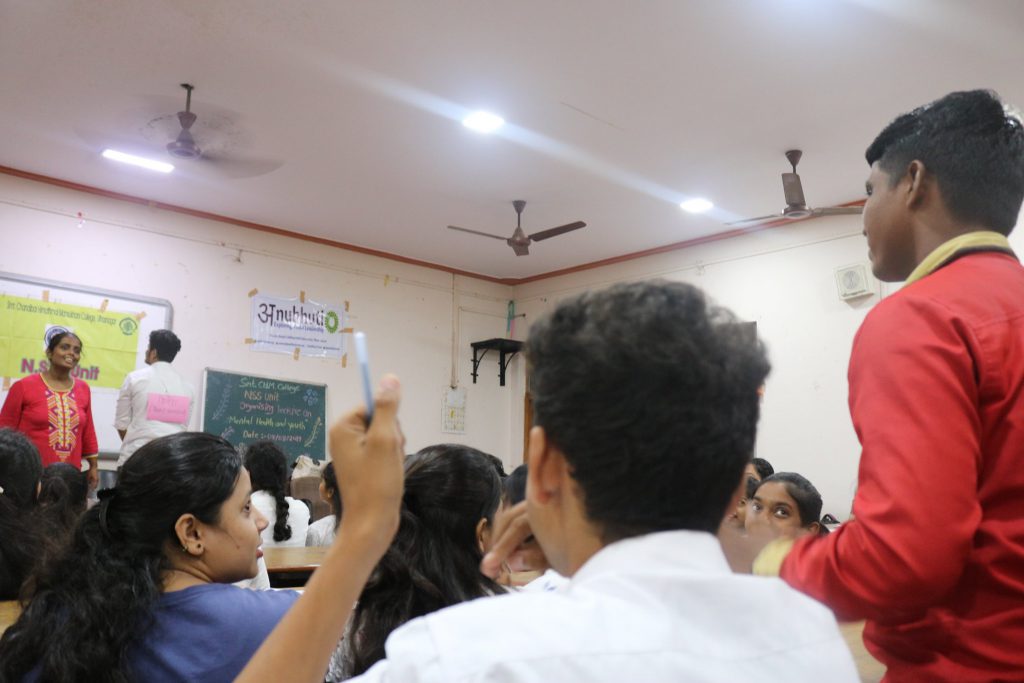
“Thank you for this session from bottom of my heart because I am facing so many problems leading to a lot of anger in me. This session was very useful for me.”
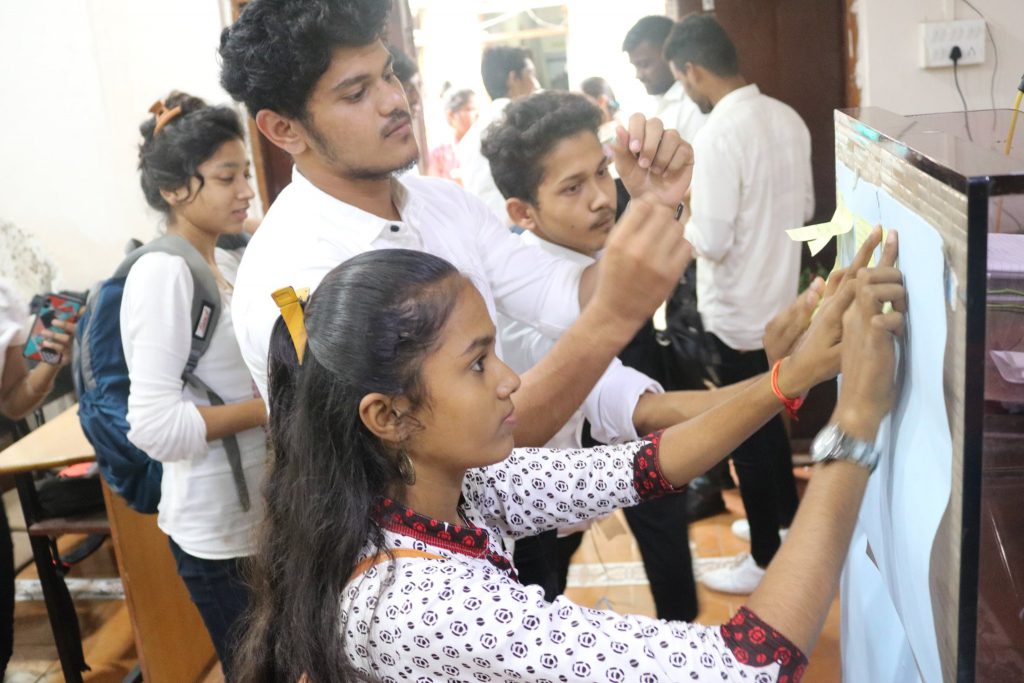
“This is the first time we heard about mental health. I liked that this important and huge topic was explained in simple words.”
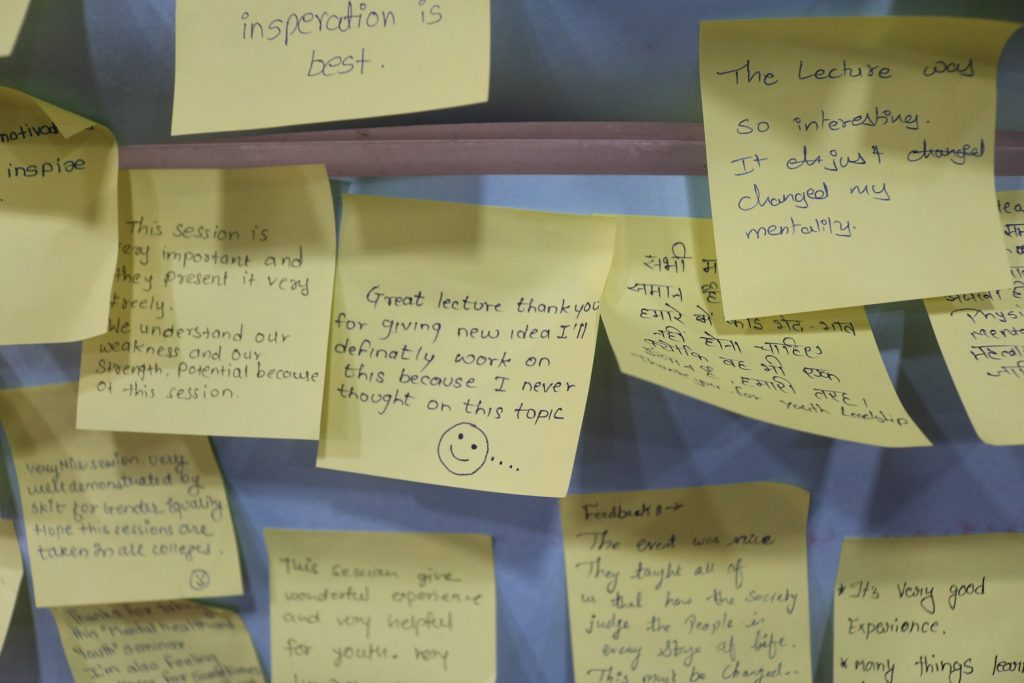
“The right of everyone to live life without being dominated, discriminated – however ‘different’ that life may seem to others – this will always remain with me.”
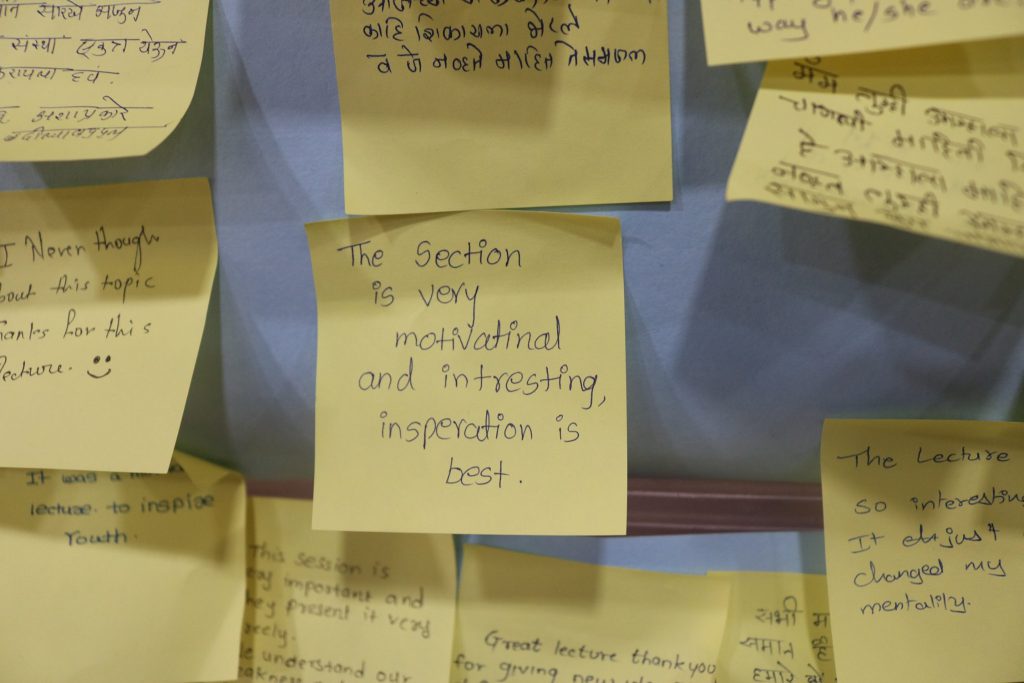
“It feels empowering to know that it is legitimate to think and talk about our mental health, and to create that same space for others.”
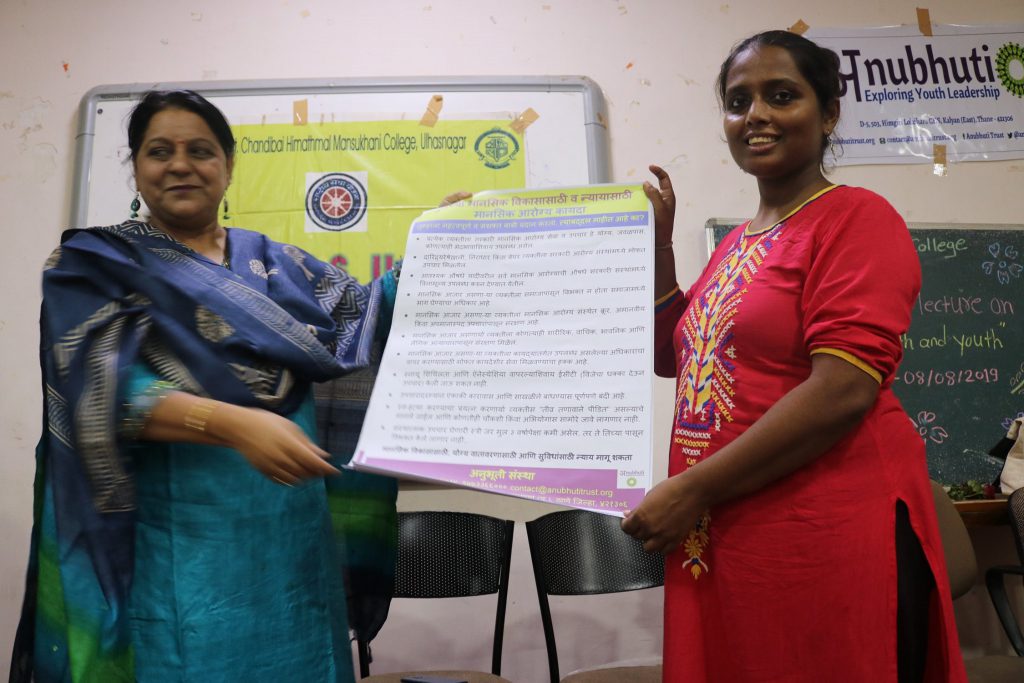
This support is needed for youth’s MH needs, yes; but also for larger social justice, fundamental rights, equity and dignity of youth – especially grassroot youth – who face distressing situations on a daily basis and have much lesser access to knowledge or resources about MH. At Anubhuti we see Mental Health as an instrinsic part of Social Justice and vice versa; we see MH to be a social, political, administrative, economic problem as much as it is a personal problem.
For example, not having access to a basic human right like safe, clean toilets is certainly an issue for my health and sanitation; but it is as much an issue of my safety, dignity and privacy; and therefore, of my mental health. It is an issue of the administration which refuses to provide me with this basic right because I live in an urban poor community. It is a problem of politics where the leadership does not think this is my basic right as a human no matter which class or caste I belong to. It is a matter before society where caste/class/religious minority social groups overwhelmingly are denied the basic dignity of using a bearable toilet. It is the same with denial of any fundamental right – which directly affects the mental health of the person being denied and directly & indirectly affects the mental health of their family, peers and entire community.
These concepts of 1. Mental health as Social Justice, 2. Intersections of social hierarchies with mental health, 3. Fundamental Rights as enabler of empowered mental health, 4. ‘Collective expectations’ affecting a person’s as well as entire community’s mental health – are unique perspectives with which Anubhuti works, developed through the work of our founder Deepa Pawar.
This work in colleges is being supported by CIVICUS World Alliance along with their partners Obama Foundation, Gates Foundation, Action4SD and Restless Development Uganda through their Goalkeepers Youth Action Accelerator Program in which Deepa is one of 26 Advocates from all over the world. The data collected from 1000 diverse youth will be used to advocate for institutional, administrative, policy-backed support to youth mental health such as:
- Including MH awareness in school and college curriculum.
- Adding MH programs in the National Service Scheme – a central government sponsored public service program with student volunteers in almost every college in India.
- Adding wider indicators of MH care, justice, empowerment in the UN’s Sustainable Development Goal 3.
- Training government and administrative stakeholders such as police, elected leaders, teachers, health workers, etc. in MH.
- Implementing the inclusive and progressive Mental Healthcare Law of 2017 in India with proper budgetary allocations.

